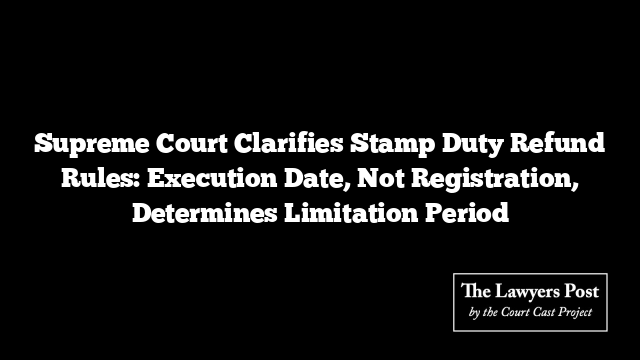In a significant ruling, the Supreme Court has held that the limitation period for claiming a stamp duty refund begins on the date of execution of the cancellation deed, not its registration date. This decision comes as a relief to homebuyers whose refund claims had been dismissed on limitation grounds under the Maharashtra Stamp Act.
A bench comprising Justices Vikram Nath, Sanjay Karol, and Sandeep Mehta overturned the High Court’s judgment in favor of flat owners who canceled their bookings due to project delays. The appellants executed their cancellation deed on March 17, 2015, but it was registered over a month later, on April 28, 2015.
Following a 2015 amendment that shortened the refund application window from two years to six months, the State had rejected the appellants’ August 2016 refund request, arguing that the new limitation period applied because the registration occurred post-amendment.
The appellants contended that their right to a refund arose when the cancellation deed was executed, not registered, and that the earlier two-year limitation period should govern their case. They argued that applying the amended law retroactively would unjustly nullify their claim.
The Supreme Court agreed, emphasizing that the High Court erred in giving undue weight to the registration date. It noted that the appellants’ vested right to claim a refund was established upon executing the cancellation deed, predating the amendment.
The Court cited the 2015 decision in M.P. Steel Corporation v. Commissioner of Central Excise, underscoring that a retrospective application of reduced limitation periods cannot extinguish existing rights.
The judgment concluded that the appellants are entitled to the two-year limitation period under the unamended law. The Court reinstated their refund claim, allowing the appeal and setting aside the High Court’s decision.
This ruling underscores the principle that amendments to limitation periods should not undermine accrued rights, offering clarity for future disputes under similar circumstances.





